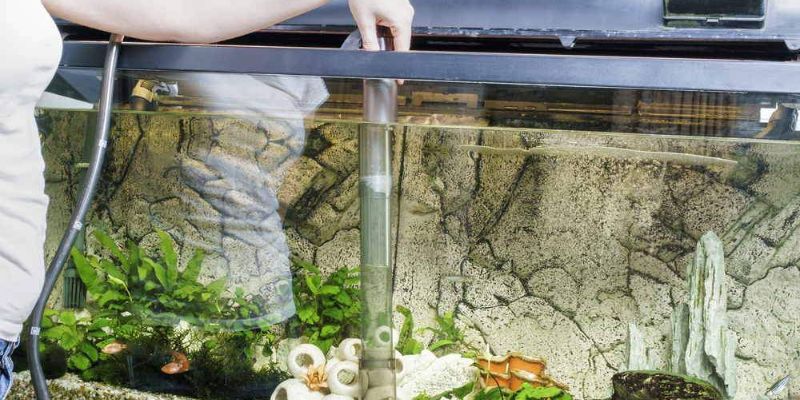Maintaining a healthy and thriving aquatic environment in a fish tank requires routine water changes. To protect the health of your fish and the stability of your tank, we will show you how to perform water changes in this detailed article. Our professional guidance will help you “How to Perform Water Changes in a Fish Tank?”, ensuring the health and happiness of your fish.
What Role Do Water Changes Play?
It’s important to know the rationale for water changes before getting into the mechanics of doing them. There are several important justifications, including the following:
Substance Detoxification
Ammonia, nitrite, and nitrate, all of which are toxic to fish, can accumulate in the water over time. Changing the water frequently can help get rid of these harmful substances and keep things secure.
Efforts to Preserve Water Quality
Changes in water assist restore and maintain the ideal pH, hardness, and temperature that are necessary for fish health. This improves health all around and lessens the likelihood of developing various illnesses.
Stopping the Spread of Unsightly Algae
Excess nutrients and garbage in the water can promote algae growth, which should be avoided. Algae may be kept in check and the tank’s aesthetic appeal preserved by regularly changing out some of the water.
How to Perform Water Changes in a Fish Tank?
Step1: Assemble all of the required materials
- To perform a water change, you’ll need the following items:
- A sterilized container fit especially for aquariums
- A gravel- or sand-sucking siphon
- An anti-chlorine and anti-chloramine water conditioner
- A water-temperature measuring device
Step 2: Power Down Your Devices
- Turn off everything that uses electricity in the aquarium, including the lights, filters, and heaters, to keep everyone safe and preserve the life of the equipment.
Step 3: Get the new water ready for use
- Water conditioners can be used to eliminate dangerous chemicals from tap water, so fill the clean bucket to the brim with that. To avoid stunning the fish, make sure the new water is around the same temperature as the old water in the tank.
Step 4: Start the water-changing process
- The siphon or gravel vacuum should be inserted into the tank such that one end is submerged and the other is below the water level. To begin the water flow, either suck on the end of the siphon or use a priming bulb. Let the water drain down the siphon without taking too much out at once.
Step 5: Scrubbing the Base
- Using the gravel vacuum, gently swirl the substrate while draining the water to loosen any dirt or trash. The cleanliness and wellbeing of your fish tank will greatly benefit from this.
Step 6: Fill up the gas tank
- Stop the siphon once you’ve taken out the required amount of water, then slowly add the new supply back into the tank. Be mindful of the aquarium’s fish and ornaments.
Step 7: Water Treatment and Continual Measurement
- To remove the chlorine and chloramine from municipal water supplies, put the recommended amount of water conditioner in the storage tank. Check the water temperature with a thermometer and make any necessary adjustments.
Step 8: Power On Devices
- Turn on the equipment you shut down before changing the water and adding any necessary chemicals. Your aquarium’s filtration, heating, and lighting will all be operational again.
Conclusion
Maintaining a fish tank properly requires routine water changes. By carefully following the detailed directions in this manual, you will soon be an expert at performing water changes. Keep in mind that your fish will require regular water changes anything from once every two weeks to once every week.

